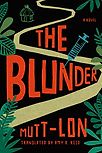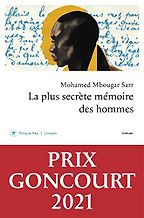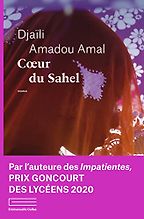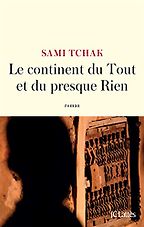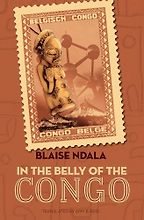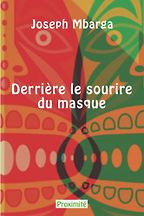You’ve selected five recent novels from Francophone Africa to recommend. Can you tell us a little about the cultural links between these countries?
The five books I’m recommending reflect both the cultural diversity of Africa and the political and intellectual engagement of its most talented authors. Their authors hail from Senegal, Togo, Congo, and Cameroon, four countries that share the experience of French colonial rule, that still use French as an official language, and that gained their independence from France in 1960—although they still remain bound to the metropole in a neocolonial relationship that the media have dubbed ‘la Françafrique.’
Earlier you noted that these books are united by the idea of a quest for identity. Could you expand?
This colonial heritage has had clear and persistent consequences for the people of these countries, who bear the scars of a painful process of cultural and religious deculturation. Yet these scars have also inspired local artists, especially writers, to reappropriate their ancestral heritage. As a result, these five very different novels each contribute to the theme of the quest for identity, for self- and cultural understanding, that drives much of the fiction from Western and Central Africa.
The first novel from Francophone Africa that you want to recommend is La plus secrète mémoire des hommes, by Mohamed Mbougar Sarr. It came out last year and made quite a splash.
My first recommendation is an echo of the biggest news in French literature. It’s been impossible to ignore this book since the announcement of Sarr’s Prix Goncourt win last autumn. That was the first time the Prix Goncourt has been awarded to an author from Sub-Saharan Africa, and his book has been unanimously praised by critics. It’s a double odyssey. First that of the hero, Diégane, a young writer who decides to go in search of T.C. Elimane, the ‘black Rimbaud,’ a flamboyant first-time novelist whom an imputation of plagiarism drove from glory to oblivion. Then that of the real Senegalese author, Mohamed Mbougar Sarr, who dives deep into the currents and eddies of French literature to pay tribute to the Malian writer Yambo Ouologuem, a young star who received the Renaudot prize in 1968 for Le devoir de violence (translated as ‘Bound to Violence’ by Ralph Manheim in 1971), and then disappeared from the literary scene after being accused of plagiarism. An English translation is forthcoming from Other Press, and rumour has it Ouologuem’s novel may soon be reedited, too.
Interesting. Thanks for the heads up. Next, you’d like to recommend Cœur du Sahel by Djali Amadou Amal. It’s newly released.
Following on the heels of her Prix Goncourt des Lycéens win for Les impatientes in 2020, Djali Amadou Amal brings us another compelling story about the condition of women among the Peuls of North Cameroon. Here is the story of Faydé, a teenager who leaves the mountains of her village to work as maid in the city, struggling to provide for her family plunged into misery after the sudden disappearance of her father. Despite the contempt and the abuse that she suffers—including rape—and armed with only her dreams, Faydé is determine to succeed.
Five Books interviews are expensive to produce. If you're enjoying this interview, please support us by donating a small amount.
Djaili Amadou is an activist dedicated to improving the lives of women and girls in Cameroon; she founded the association Femmes du Sahel, which seeks to end child marriage by promoting education for girls, and in 2021 was named a UNESCO Goodwill Ambassador. With this new novel, she again proves her talent as a compelling storyteller, painting vibrant frescos of life in her native region. She deftly sets her protagonist’s story in the broader context of life in the north, calling attention to the effects of climate change on subsistence farmers across the Sahel and the desperation of the population faced with the unrelenting and transnational terrorism of Boko Haram. A translation of Djaili’s first novel, The Impatient, translated by Emma Ramadan, is due out in October 2022 from HarperVia.
The next novel from Francophone Africa that you’d like to recommend is Sami Tchak’s Le continent du Tout et du presque Rien.
In 1970, French ethnologist Maurice Boyer settles with the Tem of Togo and learns their language. For two years he lives as part of this community, undergoing an intense spiritual and sexual awakening. Back in France he stakes his claim as a great specialist of the Tem. With the tumultuous fictional adventures of Maurice Boyer, Tchak—himself an accomplished sociologist—looks through the mirror of his own studies to consider the dynamics of how Western scientists create the Africa and the Africans they purport to study. In this exercise of scholarship and humor, Tchak makes good use of his biting style and aesthetics to redefine ethnography.
It’s a fascinating and provocative work. Although Tchak’s work has been translated into Spanish, German, and Italian, we’re still waiting for an English edition.
Sounds fantastic. Next you’d like to recommend Dans le ventre du Congo, by Blaise Ndala, another book that came out last year.
At the outset, this novel draws us into a family plot, a young woman’s search for her aunt, who disappeared decades before in the chaos of the years leading up to Congo’s independence from Belgium. Ndala paints a compelling picture of his heroines—and of the passion that lead to Tshala’s tragic end—but as he moves between the 1950s and the early 2000s, he keeps his sights and his readers’ on the long-deferred reckoning of Belgium and Congo with their colonial past. The 1958 Brussels World’s Fair, where ‘natives’ were displayed in a ‘Congolese village,’ sets the stage for a consideration of the the current outcry over racist incidents in international sport. Music fans will appreciate Ndala’s evocation of the rhythms of Congolese rumba, but what I love about this novel—as about Ndala’s previous works J’irai danser sur la tombe de Sengor (2014) and Sans capote ni kalachnikov (2017)—is how tightly he knits together the disparate threads of his tale. A translation, In the Belly of the Congo (translated by Amy B. Reid) is due out from Other Press in early 2023.
I think that brings us to the final novel from Francophone Africa that you’d like to recommend. This is Derrière le sourire du masque, published in 2021 by Joseph Mbarga.
This young Cameroonian author seems to have the gift of foresight, since his novel about the international traffic of cultural artifacts was published before there was any question of the restitution of artwork from Abomey in Benin, including the throne of King Behanzin. Joseph Mbarga writes in present tense, marking the topicality of a fight that is dear to him and with global implications.
Get the weekly Five Books newsletter
His heroes Mola and Alima, who work on a website, find themselves confronted with an international organisation of traffickers looting the art objects of the Babone people. Mbarga’s stripped-down style helps to focus on the plot, 470 pages of advocacy for the return to Africa of cultural and religious objects taken during colonisation. This is a page-turner and I can’t wait for Mbarga’s next novel.
Interview by Cal Flyn, Deputy Editor
July 29, 2022. Updated: July 1, 2025
Five Books aims to keep its book recommendations and interviews up to date. If you are the interviewee and would like to update your choice of books (or even just what you say about them) please email us at [email protected]

